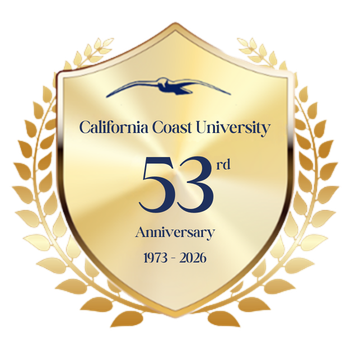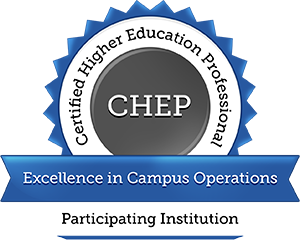| ID |
Course Name |
Units |
|
BAM 515 |
Organizational Behavior |
3 |
Organizational Behavior provides students with an in-depth review of various theories and research on the behavior, structure, and process of organizations. Formal organizations and their structure will be critically examined, and human motivations and their constructive application to oneself and others will be explored. Applicable behavioral science theories will be analyzed and students will be able to effectively apply the relevant concepts to the management of organizations.
Course Objectives
Upon successful completion of this course, students will be able to:
- Define organizational behavior and describe the basic functions.
- Examine key terms, theories and perspectives of organizational behavior.
- Evaluate issues affecting organizational behavior including global issues, diversity, ethics and corporate social responsibility.
- Analyze individual behaviors and the various types of processes in organizational behavior including social and group, leadership and influence, and organizational processes.
- Demonstrate proficiency with academic writing related to organizational behavior.
|
|
BCJ 501 |
Criminological Theory |
3 |
Criminological Theory examines crime and criminological theory by taking a direct approach to the question of why people commit crimes. It begins with an overview of the key elements of the study of crime and criminology including law, public policy, research literature, and the philosophical origins of crime theories. Each theory is broken down to its basic elements and causal processes in order to be explored against the backdrop of politics and the social context.
Course Objectives
Upon successful completion of this course, students will be able to:
- Identify and define the study of criminology and discuss its history, as well as its relation to the other social sciences disciplines.
- Describe the different sources of crime statistics and assess their advantages and limitations.
- Analyze the major criminological theories including their development, key elements, and policy implications.
- Examine the various types of crimes including their major perspectives, future trends, and responses.
- Demonstrate proficiency with academic writing related to criminology.
|
|
BCJ 510 |
Drugs, Justice and Society |
3 |
Drugs, Justice and Society is a study of substance abuse in our society. Topics include the history and classification of drug abuse and the social, physical, and psychological impact of drug abuse. Upon completion, students should be able to identify various types of drugs, their effects on human behavior and society, and treatment modalities.
Course Objectives
Upon successful completion of this course, students will be able to:
- Describe the history, terminology, and politics related to the drug problem in America.
- Evaluate the theoretical perspectives on drug use and abuse.
- Demonstrate an understanding of the legally restricted drugs and legal drug regulation.
- Analyze drug-control policy and intervention strategies.
- Demonstrate proficiency with academic writing related to drugs, justice, and society.
|
|
BCJ 515 |
Criminal Justice Administration |
3 |
Criminal Justice Administration explores the field from a systems perspective that looks at administrative issues and practices for all three branches: police, courts, and corrections. In addition to addressing the practical aspects of justice administration, the course will examine technological advances and future trends. Issues faced by the courts and justice system will also be examined.
Course Objectives
Upon successful completion of this course, students will be able to:
- Describe the foundations, principles, and practices of criminal justice administration and examine why it is important to study it.
- Analyze the role of the police organization and operation in criminal justice administration.
- Analyze the role of the courts and corrections in criminal justice administration.
- Evaluate special considerations such as ethical issues, labor relations, financial administration, homeland security, and technologies that impact criminal justice administration.
- Demonstrate proficiency with academic writing related to criminal justice administration.
|
|
BCJ 530 |
Multicultural Issues in Law Enforcement |
3 |
Multicultural Issues in Law Enforcement examines the multitude of racial, ethnic and cultural issues related to law enforcement in society. In addition, the course addresses strategies for refining law enforcement attitudes, behaviors, methods and tools for social advancement, community betterment and conflict reduction.
Course Objectives
Upon successful completion of this course, students will be able to:
- Examine the impact of cultural factors on law enforcement.
- Examine typical communication styles and dynamics in cross-cultural, cross-racial, and cross-ethnic encounters.
- Demonstrate an understanding of cultural specifics for law enforcement including historical information, demographics, and myths and stereotypes related to various ethnic groups and special populations.
- Evaluate response strategies for crimes motivated by hate, bias, and racial profiling.
- Describe best practices in cultural effectiveness for law enforcement.
- Demonstrate proficiency with academic writing related to multicultural issues in law enforcement.
|
|
BCJ 545 |
Computer Crime |
3 |
Computer Crime surveys the nature and characteristics of the many dimensions of digital crime and digital terrorism, terms which have emerged and grown rapidly since the World Wide Web has become the basis for global information, business, and government transactions. This course also addresses what experts believe is likely to occur in the future, in the area of computer crime.
Course Objectives
Upon successful completion of this course, students will be able to:
- Discuss terminology, current issues, trends, and challenges in digital crime.
- Describe the nature and extent of the various types of digital crime.
- Examine best practices in controlling digital crime.
- Analyze methods of prevention and discuss future trends in digital crime and digital terrorism.
- Demonstrate proficiency with academic writing related to computer crime.
|
|
BCJ 553 |
Supervision in Law Enforcement |
3 |
Supervision in Law Enforcement focuses on leadership theories and practices in police supervision. Students will develop the competencies and skills to confidently utilize these principles in their personal and professional lives. This course also emphasizes methods and techniques in leadership for successful and effective supervision in law enforcement.
Course Objectives
Upon successful completion of this course, students will be able to:
- Define supervision and explain the supervisor’s role and basic responsibilities within the organization.
- Demonstrate an understanding of supervisory functions including interviewing, interpersonal communications, discipline, personnel evaluation, and training.
- Describe the importance of ethical decision-making and cultural competence while in a supervisory and/or leadership role.
- Discuss the psychological aspects of supervision and examine the supervisor’s role in counseling and remediation.
- Examine the supervisor’s role related to employee dissatisfaction, grievances, discipline, and complaints.
- Demonstrate proficiency with academic writing related to supervision in law enforcement.
|
|
BCJ 562 |
Police Administration and Management |
3 |
Police Administration and Management examines organizational behavior as a means of understanding both the complexity of the criminal justice organization and the interaction between officers and managers as they work to resolve community problems. This course focuses on the procedures, politics, and human relations issues that police supervisors and administrators must understand in order to succeed. Topics covered include such organizational issues as motivation, stress, conflict, decision-making, communication, group dynamics, teamwork, leadership, and managing change.
Course Objectives
Upon successful completion of this course, students will be able to:
- Examine management, leadership, and human behavior theories related to law enforcement organizations.
- Examine best practices related to effective leadership of law enforcement organizations.
- Demonstrate an understanding of the impact individual beliefs, values, attitudes, and motivation have on law enforcement organizations.
- Explain the impact and nature of conflict, decision-making, power, and communication on the management of law enforcement organizations.
- Examine the dynamics of managing groups, teams, and change related to law enforcement organizations.
- Demonstrate proficiency with academic writing related to police administration and management.
|
|
BCJ 563 |
Criminal Justice Policy |
3 |
Criminal Justice Policy addresses crime control and/or prevention and the policies that arise from the need to address crime and deliver justice. The course examines each of the various actors in the public policy process at the federal, state and local level. By the end of the course, students will be able to comprehend the justification, logic, and evidence for specific crime policies, as well as analyze the factors that influence policymaking.
Course Objectives
Upon successful completion of this course, students will be able to:
- Identify and define the crime problem in America and examine the crime control perspectives.
- Discuss law enforcement approaches to crime control.
- Demonstrate an understanding of the role of legislation, courts and corrections in criminal justice policy.
- Analyze alternative approaches to crime control including individual, family and household crime control, community crime control, School-based crime control and, environmental manipulation.
- Explain crime trends and assess future applications.
- Demonstrate proficiency with academic writing related to criminal justice policies.
|
|
BCJ 565 |
Deviant Behavior |
3 |
3 Semester Units
Deviant Behavior examines deviance from key sociological
perspectives and theories. The course provides real-world examples
of deviance throughout to encourage critical thinking about deviant
behavior and its impact at the personal level and on society as a
whole. In addition, this course will explore global perspectives on
deviance and best practices for researching deviant behavior and
social control.
Course Objectives
Upon successful completion of this course, students will be able to:
- Describe the different conceptions, perspectives, and key
terminology related to deviance.
- Examine best practices for researching deviance.
- Demonstrate an understanding of the various social-related
theories of deviance including their development, applications,
and criticisms.
- Demonstrate an understanding of the various other theories
of deviance including their development, applications, and
criticisms.
- Discuss the societal responses to deviance, deviant careers, and
career deviance.
- Demonstrate proficiency with academic writing related to deviant
behavior.
|
|
BCJ 575 |
Terrorism and Homeland Security |
3 |
Terrorism and Homeland Security provides a theoretical and conceptual framework that enables students to understand how terrorism arises and how it functions. The most sophisticated theories by the best terrorist analysts in the world are discussed, while still focusing on the domestic and international threat of terrorism and the basic security issues surrounding terrorism today.
Course Objectives
Upon successful completion of this course, students will be able to:
- Describe the various definitions of terrorism and examine its historical roots, conceptions and perspectives.
- Demonstrate an understanding of typologies, organizational structures, tactics, and critical processes of terrorism.
- Analyze the responses to the challenges of terrorism including intelligence, homeland security, and emergency management.
- Examine best practices and future trends related to combating terrorism.
- Demonstrate proficiency with academic writing related to terrorism and homeland security.
|
|
BCJ 582 |
Correctional Counseling |
3 |
Correctional Counseling offers a strong practitioner orientation, providing students a solid foundation of research-based information from the social sciences. This course provides an overview of theoretical perspectives among a variety of counseling and case management approaches, along with assessment tools currently used. The course also examines best practices related to the field and explores issues and special populations unique to correctional counseling.
Course Objectives
Upon successful completion of this course, students will be able to:
- Define the field of correctional counseling and the functions of counselors working in the field.
- Examine the role of interviewing, interrogating, assessment, diagnosis, and classification related to correctional counseling.
- Analyze the various considerations related to correctional counseling and treatment including treatment modalities, community resources, and legal issues.
- Demonstrate an understanding of the scope, causes, treatment, and unique considerations for various offender populations.
- Discuss best practices in correctional counseling based on research in the field.
- Demonstrate proficiency with academic writing related to correctional counseling.
|
|
GRM 597 |
The Research Process |
3 |
The Research Process is a required course for all of the master’s degree programs offered at the University. This course provides an overview of the various research methods, research design, guidance in planning research strategy, and documentation of research data. It also explores and analyzes examples of research from many different disciplines, the development and use of computer-aided research, writing skills, and logical argumentation techniques required in the research field.
Course Objectives
Upon successful completion of this course, students will be able to:
- Define research methods, analyze its importance, and examine how it informs policy and practice.
- Discuss the various research strategies for description.
- Examine the statistical tools and interpretations used in quantitative research.
- Demonstrate an understanding of the various strategies for causation in research.
- Evaluate the role of research as it relates to political and ethical issues.
- Demonstrate proficiency with academic writing related to the research process.
|
|
BCJ 598 |
Final Comprehensive Examination |
0 |
Students enrolled in the Master of Science in Criminal Justice degree program will complete a Final Comprehensive Examination. The Final Comprehensive Examination consists of a combination of four writing assignments and one multiple-choice examination, requiring students to integrate knowledge acquired across the educational program. The Final Comprehensive Examination is sent to students after all the coursework has been successfully completed. The examination is graded on a pass/no pass basis. Students may repeat any portion until they receive a passing score.
|
.png)










.jpg)






